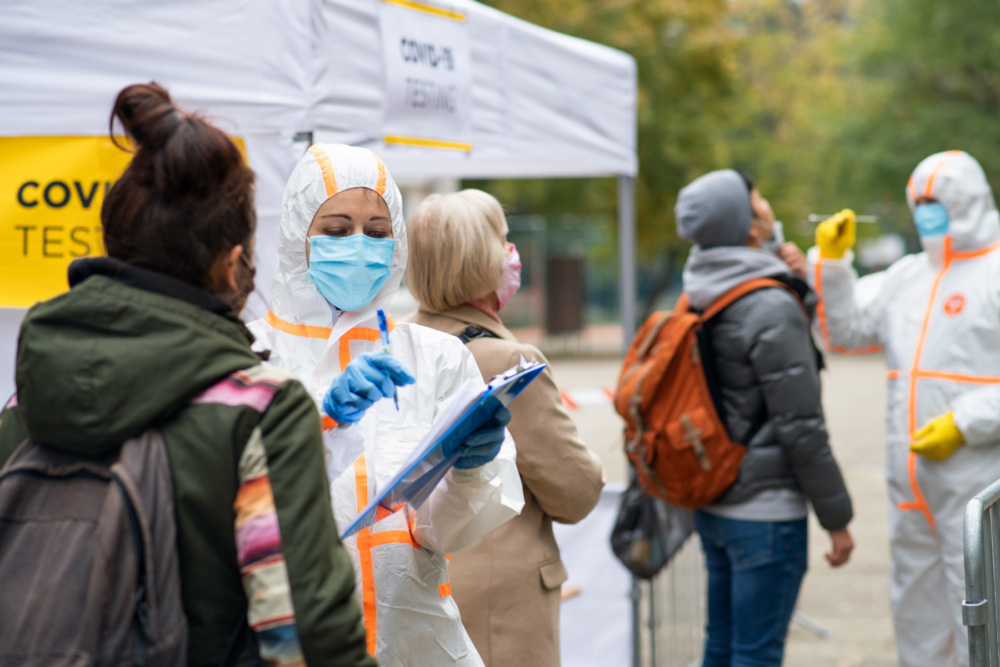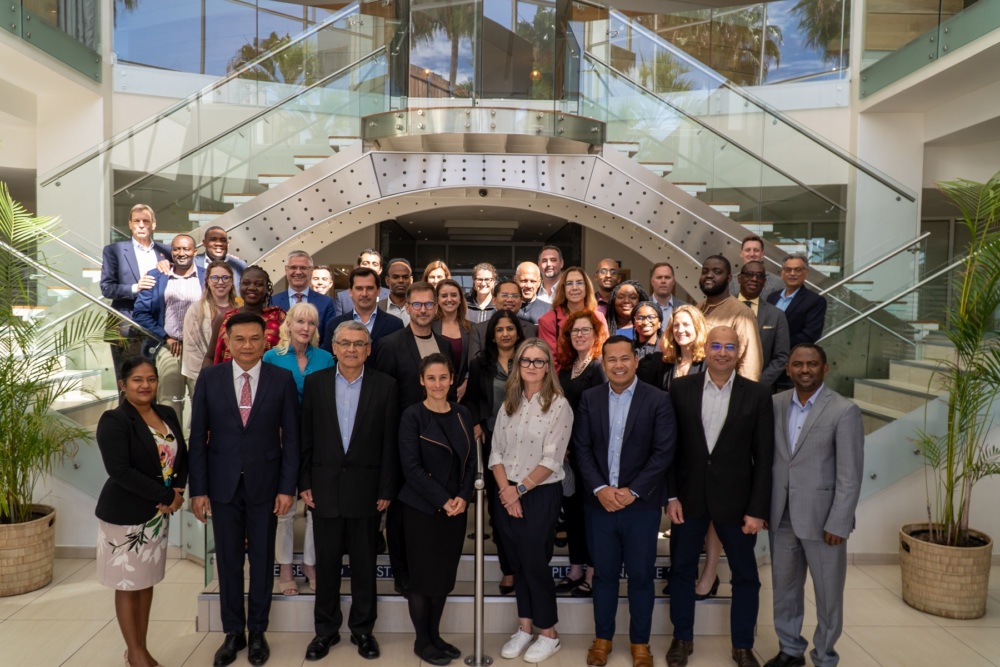
New Study Shows Robust Pandemic Preparedness Strongly Linked to Lower COVID-19 Mortality Rates
New study published in BMJ Global Health finds the pandemic was less deadly in countries that rank high on the Global Health Security Index.
Graduate Scholarships Awarded to Mekong Basin Students to Advance Global Health Security in Cambodia and Laos
Joint action by the Global Health and Security Initiative, Fondation Merieux and the University of Edinburgh offers animal and human health online degrees
The Nuclear Threat Initiative’s Global Health and Security Initiative (GHSI) and Fondation Mérieux (FMx) today announced that 10 scholarships have been awarded to graduate students in Cambodia and Laos that will allow these veterinary and epidemiology professionals to earn online degrees while continuing to provide critical health care in their home countries.
The two organizations have partnered with the University of Edinburgh, United Kingdom, to offer scholarships to improve the health security of the citizens of the Lao People's Democratic Republic (PDR) and Cambodia, both of which are member countries of the Mekong Basin Disease Surveillance (MBDS) Network. Five students from each country will receive scholarships totalling approximately $200,000, over three years and an additional $50,000 will be applied toward building and sustaining both online and traditional degree programs in the Mekong Basin region.
“In-country development of health security skills across medicine, veterinary medicine, environmental health and allied professions is a keystone in building capacity to combat the threat of disease outbreaks,” said Dr. Louise Gresham, Director Health Security and Epidemiology for GHSI. “High population densities and the close proximity of humans and animals in agrarian economies make the Mekong Basin a crucible for zoonotic disease (species-hopping) and new infectious diseases like SARS and bird flu.”
Fondation Mérieux believes that traditional campus-based PhD and MSc courses can provide the advanced training needed to sharpen skills of doctors, veterinarians and related professionals, but this can contribute to a brain drain in developing countries.
Participants may need to travel far and give up their jobs to study – making the situation worse in the short-term. Given the number of relevant professionals in the Lao PDR and Cambodia, a solution is needed that can offer credible, high quality training for working public health professionals. “Online, part-time postgraduate programs can provide the advanced training for professionals in the Lao PDR and Cambodia needed to build in-country capacity, while enabling the individuals concerned to continue with their professional duties,” explained Dr. Sue Welburn, Professor of Medical and Veterinary Molecular Epidemiology at the University of Edinburgh Centre for Infectious Diseases.
An additional longer-term focus of the project is to develop regional capacity in delivering degree programs in health security related topics. This will be spearheaded by a convening of faculty in Southeast Asia as well as 3-month placements for junior academics from universities in the region with the MSc team in Edinburgh, supplemented by advanced training in developing and delivering online distance learning.
In the third academic year, a symposium, “One Medicine: Enhancing Health Security Across Human and Animal Populations,” will bring together graduates of the programs alongside regional and international experts with the aim of embedding graduates into global networks and build linkages for GHSI and FMx with professionals in the region.
“This project will be an important contribution to health security in Southeast Asia and serve as a model for other regions facing similar health challenges,” said Terence Taylor, Vice-President for Global Health and Security at NTI.
NTI’s Global Health and Security Initiative
NTI’s Global Health and Security Initiative works through innovative partnerships worldwide to address the threat of natural pandemics, accidental outbreaks from laboratories and use of biological agents as a weapon. GHSI’s efforts seek to improve disease detection and response and to promote safe practices in biomedical science to secure dangerous pathogens and prevent the misuse of biotechnology information. For more information, please visit www.nti.org. The Nuclear Threat Initiative (NTI) is a charitable organization working to reduce the threats from nuclear, biological and chemical weapons.
Fondation Mérieux
Founded in 1967 by Dr. Charles Mérieux, Fondation Mérieux is an independent foundation with official charitable status. Its mission is to fight infectious diseases affecting underprivileged countries by making innovative diagnosis and prevention solutions available to them with sustainable development in mind. It has four main areas of action: support for applied research, scientific training and information, enhancing clinical biology and healthcare infrastructure, and assistance to patients and their families. With the support of Fondation Christophe et Rodolphe Mérieux, under the auspices of Institut de France, it develops a network of laboratory outposts in the field, at the heart of infected areas. Current field sites are located in Mali, Cambodia, Laos, Haiti and Madagascar." For more information, please visit www.fondation-merieux.org
###
Sign up for our newsletter to get the latest on nuclear and biological threats.
New study published in BMJ Global Health finds the pandemic was less deadly in countries that rank high on the Global Health Security Index.
A new digital report and companion summary detail the findings and recommendations developed from a tabletop exercise held by NTI | bio and the Munich Security Conference.
NTI | bio convened experts from around the world from governments, industry, and civil society in Cape Town, South Africa to discuss emerging biological risks and offer actions to address them.

